Dec 01
Why was the 1824 election called the Corrupt Bargain?
December 1, 1824 — Today, the debate began to decide the outcome of a deadlock between John Quincy Adams and Andrew Jackson in the US House of Representatives. For the first time no candidate ran as a Federalist, while five significant candidates competed...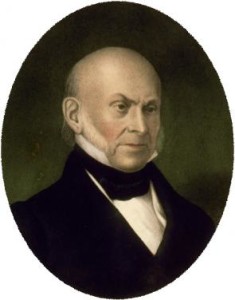
Dec 31
What caused the “Great Fire of New York,” which started this evening at 25 Merchant Street, NYC?
December 16, 1835 — Fire consumed nearly 700 buildings buildings in New York City today. It spread to 17 city blocks — but only killed two people. It cost an estimated $20 million in property damage. Spotted nearly 100 miles away in Philadelphia, the "Great Fire of...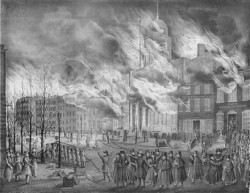
Dec 02
What did the Monroe Doctrine state?
December 2, 1823 — President James Monroe declared his "Monroe Doctrine" today in 1823, which stated that efforts by European nations to colonize land or interfere with states in North or South America would be viewed as acts of aggression, requiring US intervention. It also noted that the US would neither...
Dec 03
What was the name of Frederick Douglass’ newspaper?
December 3, 1847 — Today, abolitionist Frederick Douglass published the first issue of his anti-slavery newspaper, the "North Star." Its title was a reference to the directions given to runaway slaves trying to reach the Northern states and Canada: Follow the North Star....
Dec 04
Where, and when, did the Whig party hold its first national convention?
December 4, 1836 — For the first time in its history, the Whig party held a national convention today to determine its presidential candidate. The meetings opened in Harrisburg, PA. It was almost a full year before the general election, and the three leading candidates...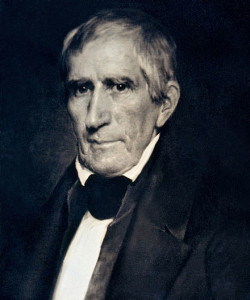
Dec 05
Who won the 2nd quadrennial presidential election?
December 5, 1792 — George Washington is re-elected as the President of the United States today. The election process lasted just more than a month — from Friday, November 2 to Wednesday, December 5, 1792. As in the first presidential election, Washington was considered to...
Dec 06
Who established the US observatory today?
December 6, 1825 — President John Quincy Adams signed the bill for the creation of a national US observatory today. The observatory's primary mission was to care for the United States Navy's marine chronometers, charts, and other navigational equipment. It calibrated ships' chronometers by timing...
Dec 07
Which president was known as “The Little Magician?”
December 7, 1836 — Martin Van Buren is elected the 8th President of the United States today. The first President from the State of New York, and the first President born after the United States had won its independence from England,...
Dec 07
Could Pearl Harbor happen again?
December 7, 1941 — Today marks the anniversary of the 1941 attack on Pearl Harbor — a surprise military strike by the Imperial Japanese Navy against the United States naval base in what was then the Territory of Hawaii that led to the United States' entry into World War...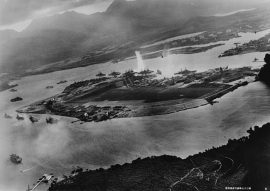
Dec 08
How many voyages did Captain James Cook take? And what killed him?
December 8, 1777 — Captain James Cook (Nov. 7, 1728-Feb. 14, 1779) left the Society Islands today. The British explorer, navigator, cartographer, and captain in the Royal Navy made detailed maps of Newfoundland prior to making three voyages to the Pacific Ocean, during which he...
Dec 09
Who established New York’s first daily newspaper?
December 9, 1793 — Noah Webster established New York's first daily newspaper, the American Minerva. It aimed to contain “the earliest intelligence, collected from the most authentic sources,” and it’s full of those long s letterforms (ſ) that look like lowercase fs and were...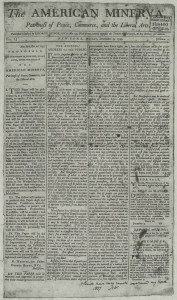
Dec 10
Which state was the first to grant women the right to vote?
December 10, 1869 — Women's suffrage, the right to vote, was granted in the Wyoming Territory today. Here's a timeline of the movement from 1777 to 1869. 1777: Women lose the right to vote in New York. 1780: Women lose the right to...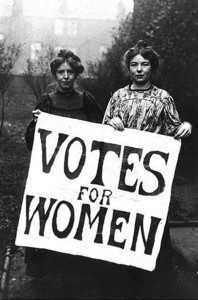
Dec 11
How many Mayflower pilgrims landed at Plymouth Rock today in 1620?
December 11, 1620 — Today on Plymouth Rock, 102 Mayflower pilgrims first step foot on the shore of what is now known as Massachusetts. They were originally bound for Virginia to live north of Jamestown under the same charter granted to...
Dec 12
Who gave Beethoven his first lesson in music composition?
December 12, 1792 — In Vienna, Ludwig Von Beethoven (right, then 22) received his first lesson in music composition from Franz Joseph Haydn today. Historians believe that Beethoven was first introduced to Haydn in late 1790, when the latter was traveling to...
Dec 13
Hey all you music fans: When, and where, did the first music store open in the US?
December 13, 1759 — The first music store in America opened today in Philadelphia by Michael Hillegas. In 1757, the first public concert took place in town. And historians tell us that as early as 1730 music lessons began to be advertised in what...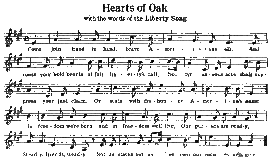
Dec 14
Where did the first state road run?
December 14, 1793 — The first state road is authorized today, running from Frankfort, KY to Cincinnati. Russell Dyche, in "Laurel County Kentucky," explains that the original settlers' route to Kentucky was over the Wilderness Road in the Virginia and...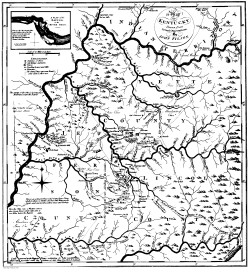
Dec 15
Disaster at the US Patent Office: What happened today in 1836?
December 15, 1836 — The U.S. Patent Office, then located at the Blodgett's Hotel in Washington, D.C., was consumed by fire today — making itthe first of several disastrous fires the organization has had in its history. Historians explain that an initial investigation...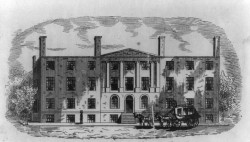
Dec 16
How many of chests of tea were tossed overboard in Boston tonight in 1773?
December 16, 1773 — Tonight, Samuel Adams and the Sons of Liberty boarded three ships in Boston Harbor and began tossing 342 chests of tea overboard. This dramatic act will result in the passage of the Coercive Acts in 1774, which pushed the Americans and...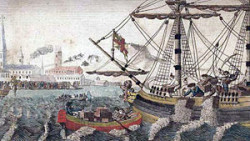
Dec 17
Where was the Aztec calendar rediscovered today in 1790?
December 17, 1790 — The Aztec calendar stone — known as the Sun Stone, or Stone of the Five Eras — was rediscovered today during repairs on the Mexico City Cathedral. The Aztecs had determined the Earth’s orbit lasted 365.2420 days....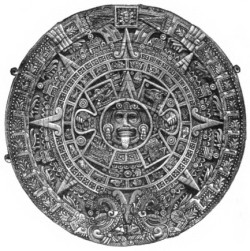
Dec 18
Where was George Washington’s body interred today?
December 18, 1799 — George Washington's body was interred at Mount Vernon today. According to historians: He died in his bedchamber on the premises four days earlier. His last will outlined his desire to be buried at home. Washington additionally made provisions for a new...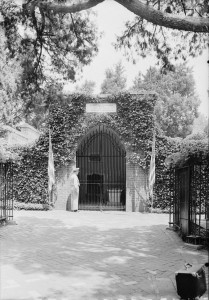
Dec 19
How many copies of “A Christmas Carol” are bought when it is published today in 1843?
December 19, 1843 — "A Christmas Carol" by Charles Dickens is published today, selling 6,000 copies the first day. The idea to write the book is said to have come to him in October of 1843. "His wife was due to...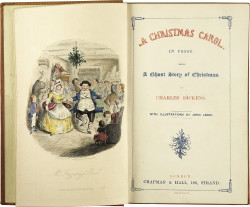
Dec 20
Who first called NYC’s Broadway, “The Great White Way?”
December 20, 1880 — A stretch of Broadway between Union Square and Madison Square was illuminated tonight by Brush arc lamps, making it among the first electrically lighted streets in the United States. It wasn't until February 3, 1902 that reporter Shep Friedman — a columnist for the New York...
Dec 21
Who was the first US Secretary of State?
December 21, 1784 — John Jay became the first US Secretary of State today. The American statesman and diplomat was one of the Founding Fathers of the United States, a signer of the Treaty of Paris and the second Secretary of Foreign Affairs — until the office was changed...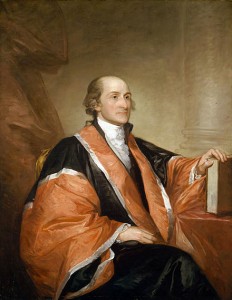
Dec 22
What was the goal of the Embargo Act of 1807?
December 22, 1807 — The Embargo Act of 1807 was signed today. Sponsored by President Thomas Jefferson and enacted by Congress, it was a general embargo that made any and all exports from the United States illegal. Historians explain that the goal...
Dec 23
Who wrote “These are the times that try men’s souls?”
December 23, 1776 — Today, Enlightenment philosopher Thomas Paine wrote, "These are the times that try men's souls," for The American Crisis, a pamphlet series published during the American Revolution from 1776 to 1783. "Throughout most of his life, his writings inspired passion, but...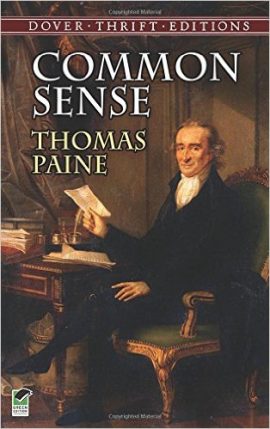
Dec 24
What sparked the 1851 fire that devastated the collection at the US Library of Congress?
December 24, 1851 — As Americans celebrated Christmas Eve tonight, fire ripped through the US Library of Congress in Washington, DC, destroying 35,000 volumes. A faulty chimney flue set off the blaze, which took two-thirds of the collection, including most of Thomas Jefferson’s personal library that...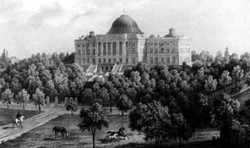
Dec 25
Who performed the first abdominal surgery in the US?
December 25, 1809 — Physician Ephraim McDowell (November 11, 1771 – June 25, 1830) performed the first abdominal surgery in the US today – removing a 22.5-pound ovarian tumor. Born in Rockbridge County, VA, the American physician and pioneer surgeon has been called...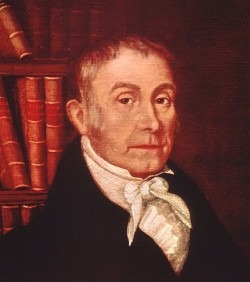
Dec 25
What was George Washington’s plan when he crossed the Delaware River tonight?
December 25–26, 1776 — George Washington's famous crossing of the Delaware River occurred tonight during the American Revolutionary War. It was the first move in a surprise attack organized by Washington against the Hessian forces in Trenton, New Jersey. Planned in partial secrecy, Washington led a column...
Dec 26
How did General George Washington win the first major US victory at Trenton?
December 26, 1776 — At approximately 8 a.m. this morning, General George Washington’s Continental Army reached the outskirts of Trenton, New Jersey, and descended on the Hessian forces guarding the city. Historians explain: "Trenton’s 1,400 Hessian defenders were groggy from the previous evening’s...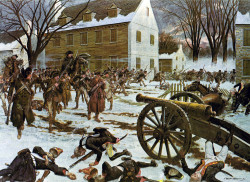
Dec 27
What was the world’s first public railway to use a steam locomotive?
December 27, 1825 — The world's first public railway using a steam locomotive was completed in England today by the Stockton and Darlington Railway (S&DR). Operated in north-east England from 1825-1863, it was the first line to connect collieries (a coal mine...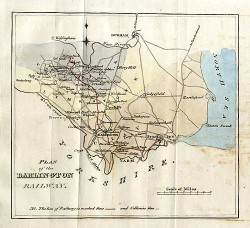
Dec 28
Who published “Poor Richard’s Almanack” today?
December 28, 1732 — Benjamin Franklin began publishing "Poor Richard's Almanack" today. The publisher of Philadelphia's Pennsylvania Gazette adopted the pseudonym of "Poor Richard" or "Richard Saunders" for his annual publication, which became a bestseller through 1758. Print runs reached 10,000 per year. The American inventor, statesman, and publisher used a mixture of seasonal...
Dec 29
What is the Treaty of New Echota?
December 29, 1835 — The Treaty of New Echota is signed today, ceding all the lands of the Cherokee east of the Mississippi River to the US. Although the treaty was not approved by the Cherokee National Council nor signed by...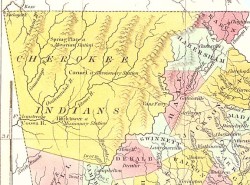
Dec 30
Why do US banks stop payments on gold today in 1861?
December 30, 1861 — US banks suspended specie payments today, halting payments in gold or silver coins for paper currency called notes or bills). As a result, Americans could no longer convert bank notes into coins. Government responded by passing the Legal Tender...
Dec 31
What did the “Wizard of Menlo Park” demonstrate today in 1879?
December 31, 1879 — Thomas Edison (aka: "The Wizard of Menlo Park") worked his magic today when he privately demonstrated incandescent light. He was one of the first inventors to apply the principles of mass production and large-scale teamwork to the process of...




